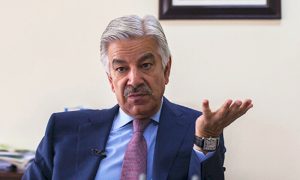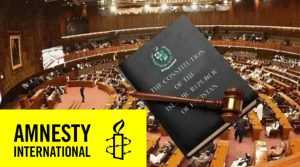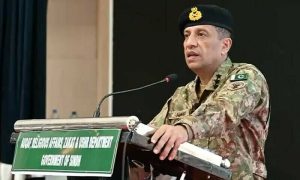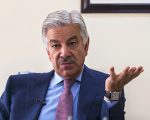LAHORE – WWF-Pakistan is greatly saddened to share the news of the passing of Richard Garstang, a renowned authority on the wildlife of Pakistan and internationally acclaimed conservation biologist on 17 August 2019 in South Africa.
Richard Garstang was an employee of WWF-Pakistan for sixteen years and during this time he held the position of Conservation Advisor and then Manager, Pakistan Wetlands Programme until 2009. He gained over 34 years of experience in natural resources and wildlife management initiative in Africa and Asia.
Richard Garstang was born in South Africa in 1947 and grew up on a sheep farm in the midlands of the Province of KwaZulu-Natal. He obtained two of his three degrees in Zoology from the University of Natal and spent his early career working for several game reserves and the South Africa National Park Board.
Richard moved to Pakistan in 1996, initially working with IUCN for just over a year before joining WWF-Pakistan as a Conservation Advisor in 1997, based in Lahore. From 1997 to 2005, Richard worked tirelessly to establish WWF as the leading conservation organization in Pakistan. He established the geographic information system (GIS) Lab, developing it as the best of its kind at the time, often paying from his own pocket to ensure the dream become a reality. He led many field teams to develop management plans for national parks. Richard also wrote the first Biodiversity Action Plan of Pakistan.
He also invested a lot of his time and energy into mentoring young conservationists both local and foreign that joined WWF Pakistan. In the early 2000’s he worked on developing Pakistan Wetlands Programme (PWP) which took two years of a continuous effort to get off the ground. Without Richards efforts and dedication PWP may have not seen the light of day.
Brig. (R) Mukhtar Ahmed, Vice President Emeritus, WWF-Pakistan said, “Richard Garstang, long-term conservation adviser and wildlife biologist who led a major WWF Wetlands conservation initiative in Pakistan, was the eyes and ears of many conservationists. He worked on saving Pakistan’s wildlife and national parks and was sought for advice in tricky matters of fieldwork. His ingenuity was always out of the box and his companionship meant immediate access to unlimited knowledge. His passing away is indeed a great loss. May his soul rest in eternal peace.”
In July 2005, Richard moved to Islamabad from Lahore with his team at WWF to implement the Pakistan Wetlands Programme. He led the teams to both familiar and remote wetlands through the length and breadth of Pakistan. Pakistan Wetlands Programme brought Pakistan’s wetlands into the limelight and raised their importance at the national and international level. From the corals of the Arabian Sea to the high altitude lakes at the roof of the world, Richards leadership in PWP made sure that everyone knew about the wetlands of Pakistan.
Malik Amin Aslam, Advisor to Prime Minister of Pakistan for Climate Change said, “ Richard was a passionate conservationist and impeccable in his implementation. He gave his best for Pakistan and brought our forgotten wetlands to the fore. May his soul rest in peace.”
Richard’s love for the people of Pakistan had no limits and after the 2005 earthquake, he personally led the first relief and rescue operations for the people of Machiara National Park in Azad Kashmir, Muzaffarabad. In 2003 he married a local lady and settled in Islamabad. His wife is a keen ornithologist and one of Pakistan’s few women mountaineers.
Due to failing health, he returned to South Africa in 2014 where he lived with his wife until his final days but never forgetting Pakistan and his friends. As a result of thirteen years of leadership in the field conservation in Pakistan, the nation now has the capacity to protect the environment and his legacies live on in the form of individuals that worked with him and who are now in prominent posts in the field of conservation.
WWF Pakistan appreciates Richard’s pioneering contributions towards conservation in Pakistan. We hope his high professional standards, gallantry and compassion will be an enduring example of what one individual can contribute to the collective good.














